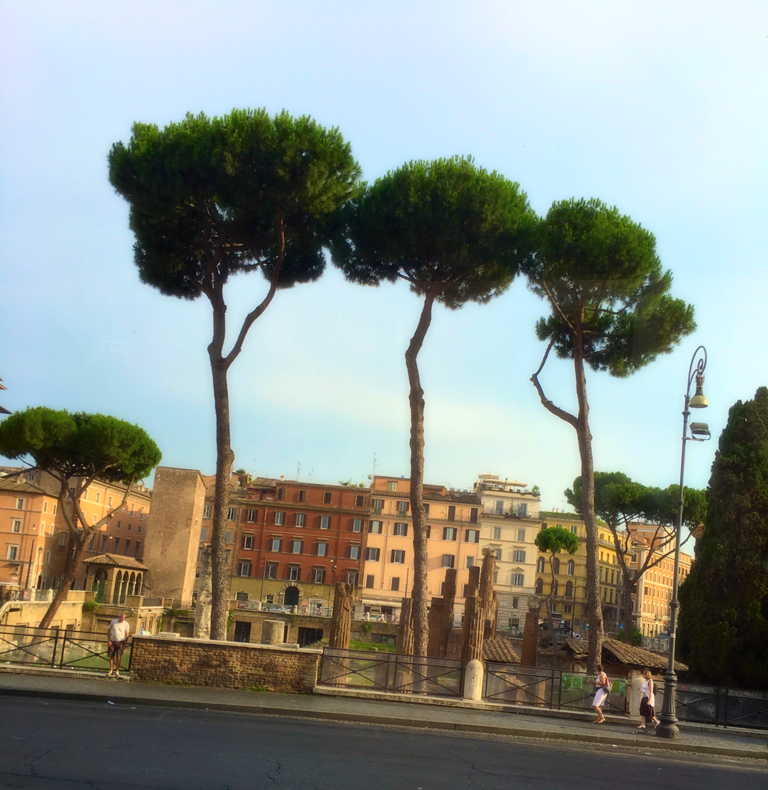I love a good Caesar Salad; the one I make at home is my favorite. Wait. Actually, the version I make is the only Caesar Salad I ever eat. I’m particular that way. Julius Caesar, as it turns out, has nothing to do with our obsession with Caesar Salad. The man credited with the creation of said salad is an Italian-born chef named Caesar Cardini. Stories conflict with the exact reason Chef Cardini threw together the exact ingredients he did, but regardless of the reason, in the early 1920s an amazing salad was born.
Julius Caesar, as it turns out, was so popular a ruler in Ancient Rome that after the senators decided to murder him they had a public outcry on their hands to which they had to respond quickly before the widespread displeasure put them out of their jobs. Their solution? They agreed to cremate Julius Caesar in the public forum and then they deified him.
And on the site where the 23 stab assassination took place now stand three trees.
It’s the trees I want to discuss.
I don’t know what variety of tree they are — all over Rome are planted amazing umbrella pines, but I believe they’re also this same beautiful evergreen.
I come from a large family with seven siblings. My mom was always having a baby — or so it seemed. More significantly, each time a baby joined our family, my father planted an evergreen in that child’s honor. These trees were special focal points in our yard as we watched them grow through the years alongside the child for whom the tree had been planted.
Just like the three trees in Rome impress upon me their significance because of the point in history they represent, the trees my father planted with love to commemorate the birth of new members into our family fill me with love and gratitude.
And just like the trees in Rome or in my dad’s yard, you also have visible (to you) plantings you have made at the most significant moments in your life.
1. What are those moments?
2. What did you plant to commemorate the event?
3. How do you feel when you look at those internal trees today and the growth you’ve experienced since they were planted?
4. How can you acknowledge yourself for your own historical significance?
Make yourself a big bowl of Caesar Salad and catalog your own historical significance.
Do more than casually consider a moment and call this exercise complete.
Really ponder and consider which parts of your history are most significant and why. Write it down. And after you feel your list is complete, read it out loud to yourself, or talk through each event and why it made the final list. Then really acknowledge yourself for where you are today as a result of how you’ve grown.
Loving you,
Arminda
